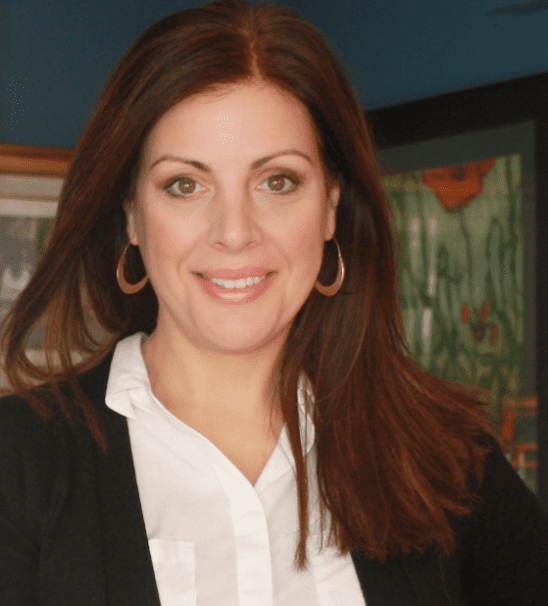
Even if hospitality runs in your blood, you should know that the restaurant industry is beginning to treat the hospitality game differently. Hospitality is now seen as a big part of building brand loyalty. Because when restaurants get customer service right, they can instill a very powerful brand message in their customers. Take it from Forbes, which has said more than once that “Customer Service Is the New Marketing.” Even though the landscape of customer service is changing with the trend of online food ordering, customers still interact with businesses, whether in person or online. And it’s just as important for restaurants to wow them with great hospitality.
Because great customer service is so vital in this business, we turned to Karin Muscarella for her advice on hospitality. Karin is the National Director for Off-Premise Sales at Paris Baguette, a South Korea–based chain with 85 U.S. stores and over 3,000 restaurant locations worldwide. Karin is a well-known customer service expert, having honed her skills over two decades for multi-unit restaurant, hotel, and event-planning firms. Here’s our interview with Karin:
ezCater: Creating a great customer experience can be challenging and complex. How do you do it well?
Karin Muscarella: It all starts with hospitality. It’s that first interaction, or touchpoint, that’s so important. Whether we’re delivering hospitality over the phone, with a customer service representative—or online, with a nice menu and ordering page on our website—we take care of our customers.
But in face-to-face meetings with our catering customers, especially for larger catered events, we go further. We want customers to see the food since it’s beautifully displayed in our stores. Then we take a seat, connect, and get to know them. It’s our personal approach to finding out what they’re looking for with their event. For big clients especially, we’ll do tastings at the store or an off-site location.
ezCater: Can you talk about how your team handles hospitality for different customers? How do you handle business catering (B2B) transactions as opposed to social catering (B2C) transactions?
Karin Muscarella: A B2B transaction is a smoother transaction. That’s because most B2B customers are ordering food on behalf of a company and so they’re emotionally detached from the transaction. When you’re working with Chase Bank and scheduling four breakfasts a week for a year, the emotions are removed. For B2B customers, it’s about cost, what we’re providing, and setting up a payment schedule.
By contrast, a social, or B2C, client usually takes a little bit more handholding, a little bit more time and effort. Usually the catered event is a personal occasion with more at stake emotionally. If you’re working with the mother of the bride and she’s doing a brunch for her daughter, that’s a totally different interaction than you’d have with a corporate client.
In both cases, it’s about being prepared. It’s smart to have your sales deck of product photos ready so you can show customers exactly what you sell and what services you offer. Have all your pricing available as well. It makes the process faster and more pleasant for everyone.
ezCater: A hospitality mentality comes naturally to some people, while others require training. At Paris Baguette, how do you find the right hospitality workers for your brand?
Karin Muscarella: I have to admit that finding people with a natural sense of hospitality is a challenge that’s getting harder and harder. Coming up in fine dining restaurants and hotels when I did—those jobs were the embodiment of hospitality. But today, people can get high-quality food quickly and without the service. And probably, for the most part, it’s without the hospitality. The customer expectation of service is very different today and that affects the employees we hire.
ezCater: So what’s the ideal employee you’re looking for?
Karin Muscarella: I always try to recruit hospitality-forward people. By that I mean people who have generational experience, such as people whose parents have owned restaurants. These candidates get more exposure to hospitality, so they know hospitality. I also look for candidates who are very customer-service oriented and who truly want to make an experience positive. These people just want to please other people.
But the truth is this: If your heart’s not in the service of people, then it’s really hard to teach you hospitality. People who succeed in the hospitality industry do so because they like it. In any business, if you’re not making people happy with your service and products, you don’t have a business.
ezCater: That person with a naturally hospitable attitude—how do you polish that into professionalism?
Karin Muscarella: That’s a lot easier. That’s training. I bring employees along on face-to-face client meetings and tastings where they can see me or another person on my team interact with clients. Having them shadow us is a great way to teach.
There’s also a lot of value in giving scripts to people who are just starting out in customer service. A script shows employees how to respond to customer questions and steer customers to products they might like. It gives employees a starting point they can build on.
ezCater: You’ve talked a lot about face-to-face interactions. What does hospitality “look like” on the phone?
Karin Muscarella: It’s service with a smile that customers have to feel. It’s not losing your patience when someone is asking you the same question over and over. It’s literally putting the idea in your head that you’re going to give customers what they’re looking for.
In this day and age, just answering the phone with a real person on the line is the first step to hospitality. Having employees who want to converse with customers and try to fulfill their needs is the second step. Even on the phone, I think customers can tell if you’re genuine about making their experience a positive one.
ezCater: That’s really interesting, because a big question for restaurants these days is how to create that sense of connection not only over the phone but online. Especially because online ordering is on the upswing. In fact, Technomic reports that nearly one-third of customers—32 percent—prefer to place their orders online, and more customers may choose to do this as restaurants invest in their online portals (“2018 Catering Insights Program,” 43).
Even though customer service is partially going digital with online food ordering, there’s plenty restaurants can do to make sure their online hospitality process is on point. For instance, restaurants can start thinking about what their websites do for the customer experience. Is your website mobile-friendly and easy to navigate? Can customers order meals and catering online easily—and can they modify orders for, say, dietary restrictions and preferences? Does your website offer customer support through email and chatbots? And is there a team of real people behind the scenes to make sure things go smoothly for all online orders?
While much of digital hospitality remains invisible to customers, at ezCater we believe this kind of personalized service can make a big difference in the customer experience, just as traditional forms of hospitality can make a big impact for restaurants.
Thanks so much for sharing your insights on hospitality, Karin. The advice you shared with us can help restaurants take their customer service to the next level.
Karin Muscarella: Thank you.
This interview was condensed and edited for clarity.
Learn how partnering with ezCater can help your business







